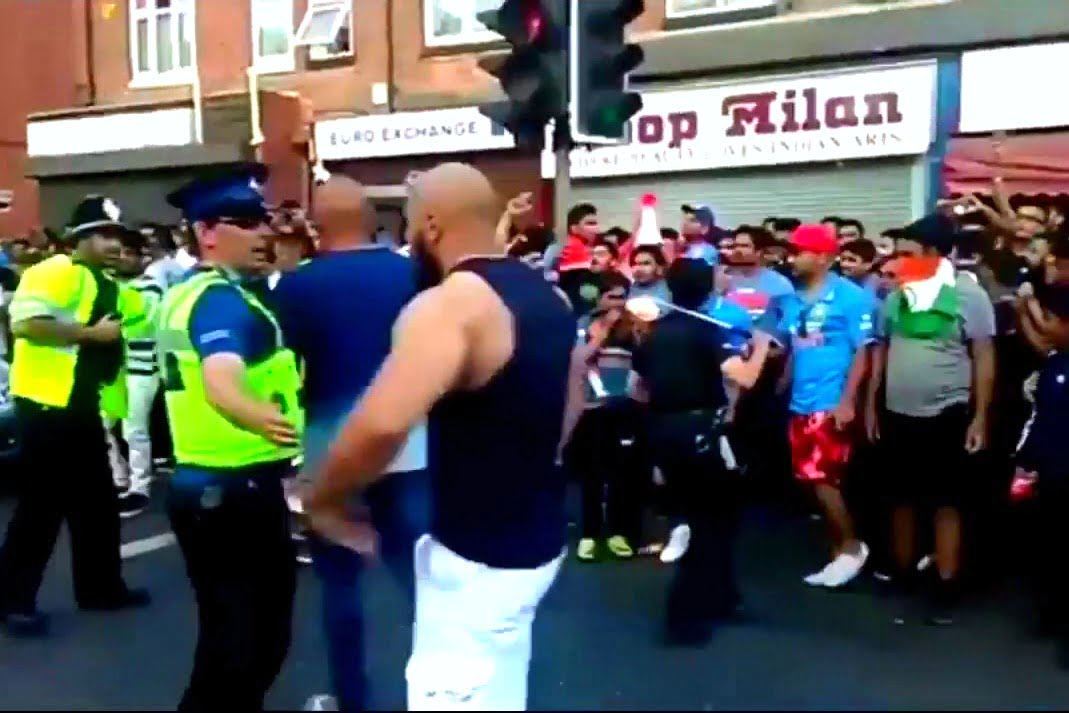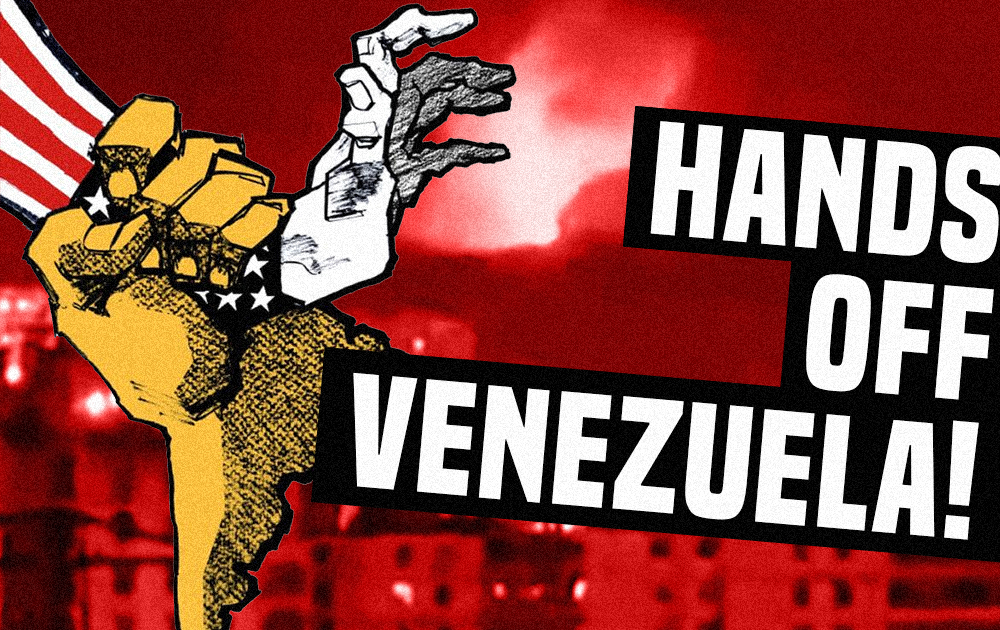The growing far-right nationalism of the sub-continent spilled out onto the streets of Leicester on Sunday 19th June as India and Pakistani cricket fans clashed. Hindu nationalism, on one side, and Islamic fundamentalist groups, on the other, are gaining ground, dividing working class diaspora communities.
The growing far-right nationalism of the sub-continent spilled out onto the streets of Leicester on Sunday 19th June as India and Pakistani cricket fans clashed on Belgrave Road, injuring six policemen and creating havoc on the streets after Pakistan successfully won the 2017 ICC World Cricket Championships.
Whilst deep-seated tensions between the two nations have always existed, making a cricket match between the two a special event, violence such as this is extremely rare in Britain and has no particular precedence.
Outlets from the BBC to the local papers have interpreted this clash as some some drunken overexcited fans getting out of hand, but it is symptom of something much deeper: a reflection of the growing far-right Hindu nationalism in Indian politics, on the one side, which is specifically attacking religious minorities and anyone who speaks out against the government; and, on the other side, of the Islamic fundamentalist groups gaining ground in Pakistan and Bangladesh. As gross inequality continues to spur on Hindu and other religious nationalisms across the sub-continent under capitalism, this will inevitably continue to spill over into the politics of diaspora.
In a conversation I had a couple of years ago with a British Muslim, similar to me in terms of age, class, and where our heritage lied in India, we inevitably got to talking about cricket. He told me that he had chosen to support England over India or any team in the subcontinent. Whilst I initially found this surprising, it is completely understandable given the alienating and reactionary Hindu nationalist politics which was – and had been for decades – growing, especially so since the pro-market reforms of the early 1990s, which has led to a rapid rise in income and wealth inequality. Oxfam has reported that India’s 57 billionaires outrageously own the same wealth as the bottom 70%, in a country where the population is well over a billion people, and this trend looks only set to grow wider.
Under these circumstances the current right-wing Hindu nationalist BJP government led by Narendra Modi, who was complicit in Muslim pogroms in 2002, has ramped up Hindu nationalism in an attempt to divide the working class along religious lines and stamp out dissent. This is clearly evident with the politicisation of cricket, with 15 Muslim Indians being arrested – for celebrating Pakistan’s ICC Champions final victory in Madhya Pradesh – under the act of sedition, which is punishable by death. These 15 are currently in jail pending a trial.
Recently a national beef ban has essentially been enacted, the cow being a sacred animal for Hindus. In 2014 the BJP replaced Christmas with ‘Good Governance Day’ requiring government employees to come into work, thus specifically attacking Christians. Last year Kanhaiya Kumar, leader of the student wing of the Communist Party of India was arrested on the grounds of sedition for allegedly promoting anti-Indian slogans at a student rally. In April, Pehlu Khan was murdered by a mob in Rajasthan for transporting cattle, with other Muslim traders being thrashed, yet the Hindu driver was left unharmed. The examples are many and there is a growing fear and alienation amongst religious minorities in India, as well as any who questions the state.

Pakistani and Indian cricket fans clash on the streets of Leicester
These issues are not however isolated to the sub-continent but are spilling out into British streets, as seen with the incident in Leicester. Complicity for such driving forces lies also at the very top of British politics. In the 2015 general election campaign, for example, Bob Blackman, the sitting Conservative MP for Harrow East, distributed thousands of leaflets claiming that Labour would introduce anti-caste discrimination laws, in a scare tactic designed to divide the electorate and stoke divisions within communities of South Asian descent. The Conservatives, under both David Cameron and Theresa May, have also laid out the red carpet for Narendra Modi, turning a blind eye to any repression in the sub-continent and amongst the diaspora, especially regarding caste discrimination. This neglect and backwardness is perhaps best symbolically recognised when David Cameron unveiled a statue of Mahatma Gandhi in Parliament Square in the name of peace and friendship between the two nations. However, whilst the building of the statue was announced between the two nations, a day after a £250 million arms deal was signed.
Furthermore, fundamentalist Hindu organisations are thriving within the British education system itself. For example, the Vishva Hindu Parishad, a Hindu fundamentalist organisation linked to the BJP, has helped to write GCSE religious education textbooks on how to teach Hinduism in schools, promoting a narrow reactionary perspective on Hinduism. These organisations have also helped independently set up shakha’s for Hindu children to learn about Hinduism from their perspective, with undertones of far-right nationalist sentiments. Within universities too, the National Hindu Students Forum has grown across campuses and is an official correspondent for the Akhil Bharatiya Vidyarthi Parishad, the student wing of the prominent far-right Hindu Nationalist organisation known as the Rashtriya Swayamsevak Sangh, which is essentially a fascist organisation.
Hindu-fundamentalist organisations have a long history in the sub-continent, stretching well back into the 19th Century. But its presence and dominance is worryingly spilling over into the politics of diaspora at an alarming rate, spurred on by ranks within the Conservative Party. The negative effects of such nationalism is nowhere better seen than through politicisation of cricket, as demonstrated in the violent clashes in Leicester.
The majority of people who fund and run these organisations are those intent on dividing the working class, whipping up nationalist sentiments, and defending both the Narendra Modi government and the Conservative party who turn a blind eye to such repression. The Left and the labour movement need to highlight and combat this growing nationalism. As inequality increases and capitalism’s crises continue, it is incumbent on the Left and its leaders to strive to unite communities – amongst the diaspora and beyond – on class issues, both in Britain and in the sub-continent itself.






